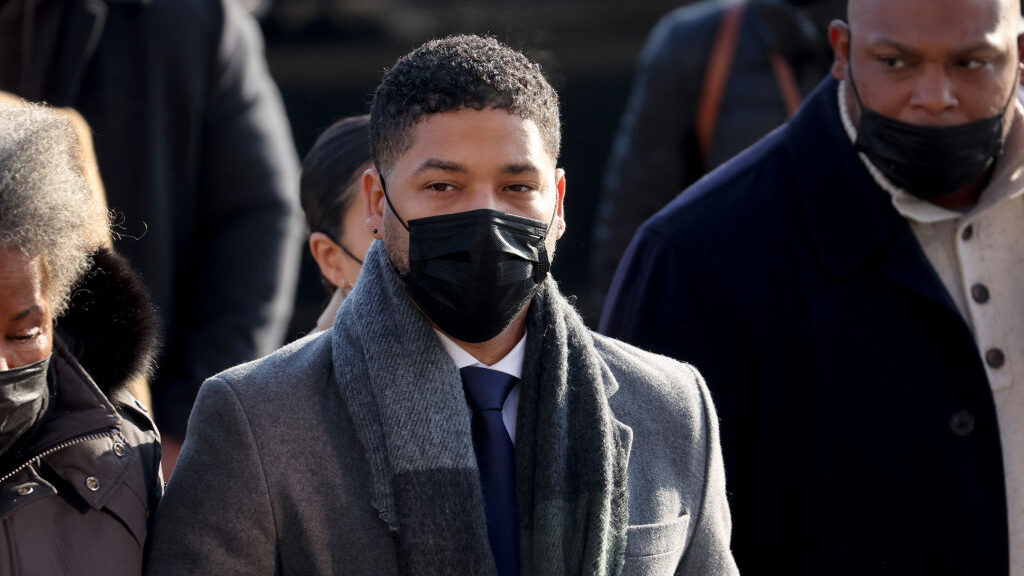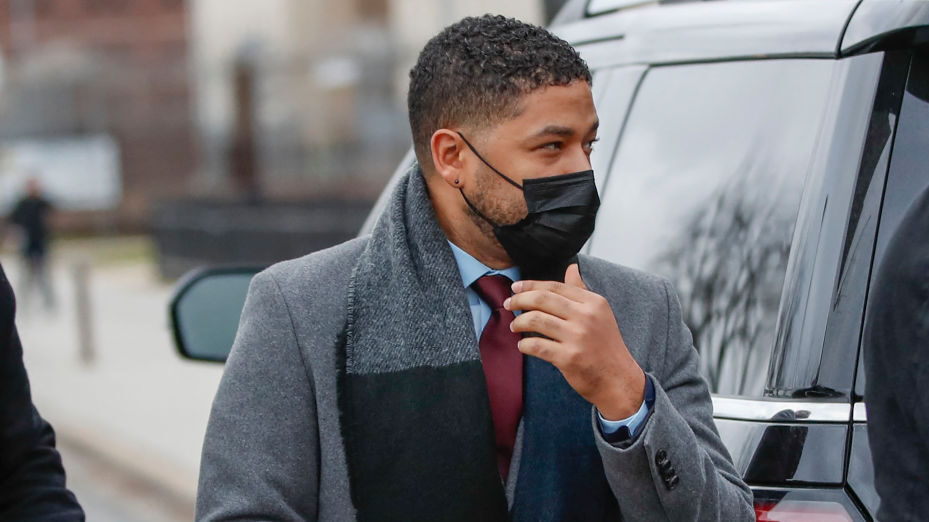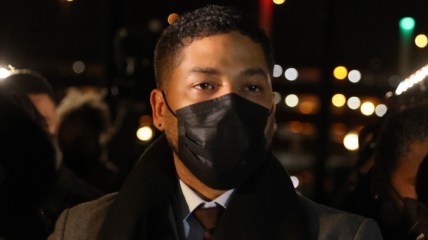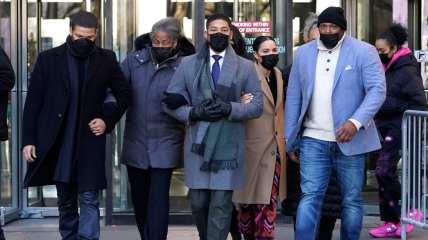After Jussie Smollett verdict, we should be able to hold our own accountable without being accused of anti-Blackness
OPINION: The conflation of healthy skepticism surrounding the troubled actor and supporting the carceral state is an extreme that does more to gaslight Black people than humanize them.
If you had doubts about actor Jussie Smollett’s account of what happened to him on that super cold Chicago night in 2019, you’re not alone. You’re also not a cheerleader for the notoriously corrupt Chicago Police Department, an agent of the carceral state or anti-Black/anti-LGBTQ.
You’re a human with critical thinking skills who just thought it was bizarre that a wealthy celebrity would brave the frigid polar vortex alone at 2 a.m. to go to Subway (after a failed attempt to get eggs at Walgreens) and who just so happened to be physically attacked with bleach and a noose by a pair of alleged Trump supporters, who turned out to be two Nigerian men he knew. The fact that Smollett would keep the noose on while waiting for the police just made it even more strange. What Black person, who had built a reputation as being one of the more woke celebrities around, would keep a noose around their neck?
And just like Meryl Streep in her Oscar-nominated role in Doubt, that’s when I, too, had doubts.

Clearly, the jury had them too when they convicted the Empire star on five out of six counts involving filing a false police report about a fake hate crime.
Immediately, an already-polarizing case got even worse on social media as Smollett supporters began to make false-equivalencies between Kyle Rittenhouse’s not-guilty verdict and the troubled actor’s conviction. Suddenly, more narratives targeting Black people who questioned Smollett’s innocence got framed as anti-Blackness and homophobia. As a Black gay man who has covered this case from the very beginning, I, too, had some people falsely claim that I trusted the Chicago Police Department over a Black man and that I had internalized homophobia and anti-Blackness for questioning Smollett’s account early on.
Newsflash: I have extensively covered cases involving the flaws of the police state, have advocated for defunding the police, have called on the resignation of my local police commissioner and have called for the abolishment of its sister institutions (such as the sheriff’s department)—and I still believed that Smollett wasn’t keeping it all the way 100 with our community.
No, I don’t think Smollett should go to jail, but I do think he needs help—and trying to make a dishonest celebrity the face or martyr of our collective struggle isn’t it.
This pattern of questioning one’s commitment to Black liberation every time one pauses to pushback is exhausting and counterproductive. If Black people can’t rationally question our own, who else can and should? We are not a monolith, and those who have a blind allegiance to Black celebrities—who hold immense financial and social capital—aren’t helping us. Yes, the criminal justice system has always been flawed for Black people. History has taught us to be rightfully skeptical about the police and those who execute duties on their behalf. But life has also taught us that individuals lie as well—and two things can be true at the same time.
I remember during the Bill Cosby trial, how the failures of the criminal justice system were weaponized against the community to not believe his victims. In that situation, two things were true: The criminal justice system, and the white supremacy that surrounds it, was questionable—but so was the individual who got caught up within it.

I feel the same way about Smollett. I think any person whose ego is big enough to call himself the “gay Tupac” before a packed concert shortly after being an alleged victim of a hate crime isn’t well. The fact that he spent most of his testimony giving us irrelevant, salacious details (such as revealing his drug-induced sexual escapades with one of the Osundairo brothers) rather than making any of the bizarre details from the night of the incident make sense, was a red flag for me. Again, it wasn’t the debatable evidence from the Chicago police that made me cynical—it was Smollett’s own actions that did it for me.
As we watch how this saga draws to a close (Smollett’s lawyers say they will appeal the verdict), one thing our community should do right now is take a deep breath and repeat after me: No one celebrity’s downfall is indicative of the progress to end our collective struggle. As a Black queer man who has been the victim of a hate crime, my (or anyone else’s) story isn’t made less credible by Smollett’s guilty verdict to those who already don’t believe Black people. We should remember that all this trial has done is give white supremacists another scapegoat to project their not-so-subtle bigotry upon. They were doing this before Smollett; they will continue after him.
What we should keep in mind is that the moment we begin to isolate and mischaracterize the fair critique, skepticism and inquiry involving those within our own community, we not only dehumanize our people, but we oppress them. Again, if we can’t challenge our own, who else can and should? I love my people, I don’t rock with the police and I still believe Smollett got some explaining to do if we are to move forward collectively. Having doubts is as powerful as having certainty, and we should humanize Black people for having both.

Ernest Owens is the Editor at Large of Philadelphia magazine and CEO of Ernest Media Empire, LLC. The award-winning journalist has written for The New York Times, NBC News, USA Today and several other major publications. Follow him on Facebook, Twitter, or Instagram and ernestowens.com.
Have you subscribed to theGrio podcasts “Dear Culture” or “Acting Up?” Download our newest episodes now!
TheGrio is now on Apple TV, Amazon Fire and Roku. Download theGrio.com today!


